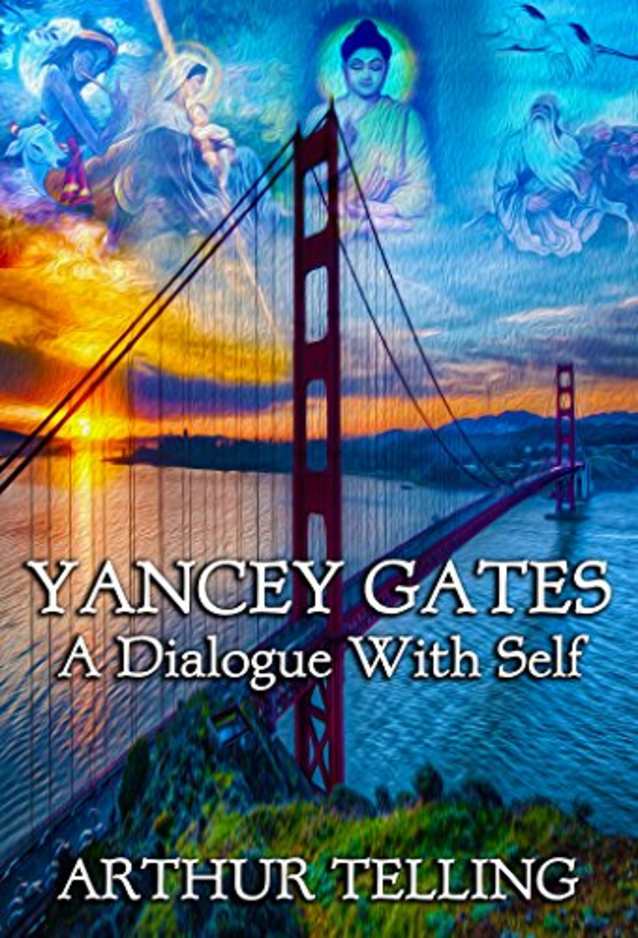Yancey Gates: A Dialogue With Self
About
Yancey Gates seeks enlightenment, while enduring a mundane job plagued with office politics at the San Francisco Planning Department. Opportunity arises when a dynamic new California governor proposes a World’s Fair in San Francisco having a spiritual theme. Yancey has just entered a new world of magic and spiritual authority, Governor Anderson and his young wife Kaitlin carrying him to new heights far outside the usual backbiting politics.
The Governor’s plan gives him a central roll in the planning of the new World’s Fair, carrying him to a Northern California Buddhist monastery where present moment awareness is a way of life, and to a fiery American Indian chieftain whose distrust of the White Man threatens the governor’s plan.
Remaining steadfast as he navigates through challenges and pitfalls, and finding great favor with the Governor and his wife who perpetually support and protect him, Yancey’s focus stays on the question of his real purpose, his reason for living, and he brings you, the reader, along a tumultuous journey towards enlightenment.
Praise for this book
“YANCEY GATES: A DIALOGUE WITH SELF”
You don’t just read, Yancey Gates: A Dialogue With Self, you “engage” it, not just with the characters and the plot, but with the entire existence. The story is written in first person, present tense. I have taught creative writing for years, and to be honest, I always caution my students against that
particular approach explaining that, while it is the easiest way to put a story on paper, it is the most difficult technique to accomplish. In this book, Arthur Telling not only accomplishes the technique he masters it!Upon first observation, one might think that Yancey Gates is the protagonist of the story, but through Mr. Telling’s unique, and most compelling style, it soon becomes evident that the reader is propelling the story. As you read you will, personally, interact with the governor, with a modern-day Indian warrior who calls himself Groundhog, and with Shang Hua, the Buddhist founder of a monastery who, though dead for twenty years, makes his presence known in spiritual form.
FROM THE BOOK: If you’ve read this book through you will not forget it tomorrow; in fact, you’ll never forget this book, put it out of your mind maybe, but you won’t entirely forget it. Like all your experiences, it will become a part of you, miniscule perhaps, but a part nonetheless. And the opposite is true as well. Whoever reads my books will put an imprint into the material, and I’ll feel that and it will become a part of me.
I pulled this cut from the story to illustrate an observation. All readers find themselves drawn into the novels they read, but generally as passive observers. In Yancey Gates: A Dialogue With Self, you become not a passive observer, you actually participate. As someone who has been in the literary profession for sixty years, I can say with a great degree of confidence that this is a book that will remain in your psyche long after you have read it.
Robert Vaughan, New York Times Bestseller list seven times, wrote, produced and appeared in the History Channel documentary Vietnam Homecoming, recipient of the Spur Award, PORGIE Award (Best Paperback Original), Western Fictioneers Lifetime Achievement Award, President's Award for Excellence in Western Fiction, and member of the American Writers Hall of Fame and Pulitzer Prize nominee.
